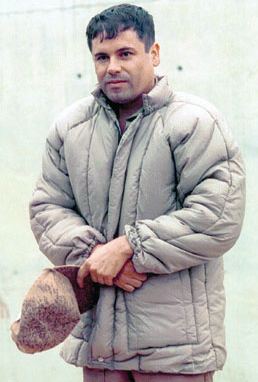El Chapo Guzman: The Legacy of a Notorious Drug Lord

Introduction
Joaquín ‘El Chapo’ Guzman, one of the most infamous drug lords in history, has left an indelible mark on the drug trade and law enforcement, not only in Mexico but globally. His story is a reflection of the complexities and dangers associated with the narcotics industry. As Guzman’s influence continues to be felt even after his capture and imprisonment, understanding his legacy remains vital.
The Rise and Fall of El Chapo
Born in 1957, Guzman’s journey into the world of drug trafficking began at a young age. He swiftly rose through the ranks of the Sinaloa Cartel, becoming the de facto leader by the 1990s. Under his command, the cartel established itself as one of the most powerful drug trafficking organizations across the Americas, responsible for smuggling tons of cocaine, heroin, and other drugs into the United States and beyond.
Guzman’s ability to avoid law enforcement through bribery and the sheer ruthlessness of his operations led to a notorious reputation. He became a symbol of the rampant violence and corruption that characterizes the drug trade, culminating in a dramatic escape from a high-security prison in Mexico in 2015. His recapture in 2016 led to a lengthy trial in the United States, where he was ultimately found guilty on multiple charges and sentenced to life in prison in July 2019.
Impact on Drug Trafficking and Law Enforcement
The legacy of El Chapo extends beyond his criminal undertakings. His operations have sparked increased violence in Mexico as rival cartels vied for control of the lucrative drug trade. Furthermore, Guzman’s trial highlighted the challenges faced by law enforcement agencies unable to keep pace with the evolving tactics of drug trafficking organizations.
As authorities continue to dismantle the networks associated with Guzman, the repercussions of his reign are evident. The ongoing power struggles among cartels have resulted in significant violence, with thousands of lives lost in the conflict. Additionally, Guzman’s connections have revealed to law enforcement the extent to which drug trafficking has infiltrated political and societal structures, making it a multi-faceted issue that requires comprehensive solutions.
Conclusion
El Chapo Guzman’s influence on the drug trade and law enforcement remains significant, even in his absence. His story serves as a cautionary tale about the dangers posed by organized crime and the challenges that persist in the fight against drug trafficking. As authorities continue to grapple with the remnants of Guzman’s empire and its ongoing impact, the need for collaborative international efforts to combat drug-related violence and smuggling is increasingly evident. The lessons learned from El Chapo’s rise and defeat will be critical in shaping future strategies to address the complexities of the narcotics landscape.









